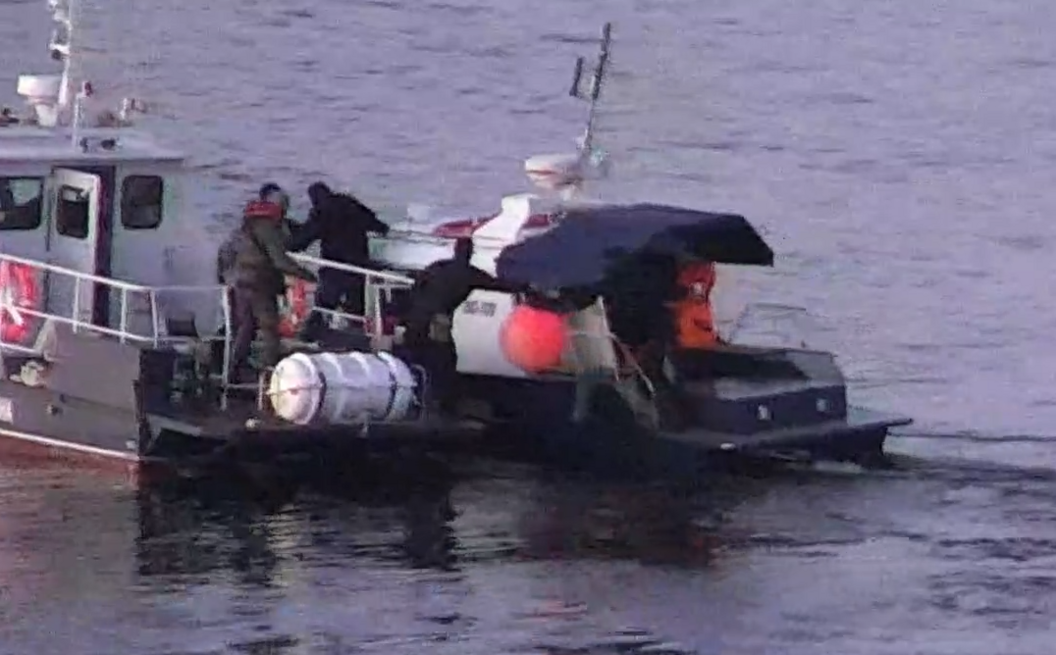Russia's removal of border markers 'unacceptable' - EU

Estonian police released images of the buoys being removed
- Published
The European Union has denounced Russia's removal of buoys marking the border with Estonia on the Narva River.
A total of 24 out of 50 buoys placed to mark sailing routes were removed in the early hours of Thursday, Estonian officials said.
Tensions over the border have risen since Russia's full-scale invasion of Ukraine in 2022.
EU foreign policy chief Josep Borrell said "such actions are unacceptable".
"This border incident is part of a broader pattern of provocative behaviour and hybrid actions by Russia, including on its maritime and land borders in the Baltic Sea region," he said in a statement.
Moscow has taken issue with the placement of the floating markers, used to prevent boats from straying into foreign waters, and disputed the planned locations of about half the 250 buoys, Estonia's border guard service said.
Estonian Prime Minister Kaja Kallas said she was trying to clarify the situation with Russia.
She said it appeared to be part of a "broader pattern" of action by Moscow to use "tools related to the border to create fear and anxiety".
Estonia's foreign ministry said it had summoned Russia's chargƩ d'affaires and said it was treating the move as a "provocative border incident".
In a statement, it said it had demanded the "immediate return" of the buoys.
It comes after the Russian defence ministry briefly published a proposal to revise its maritime border in the Baltic Sea this week.
The proposal was deleted after creating concern among Nato members, including Estonia.
Moscow is yet to comment.